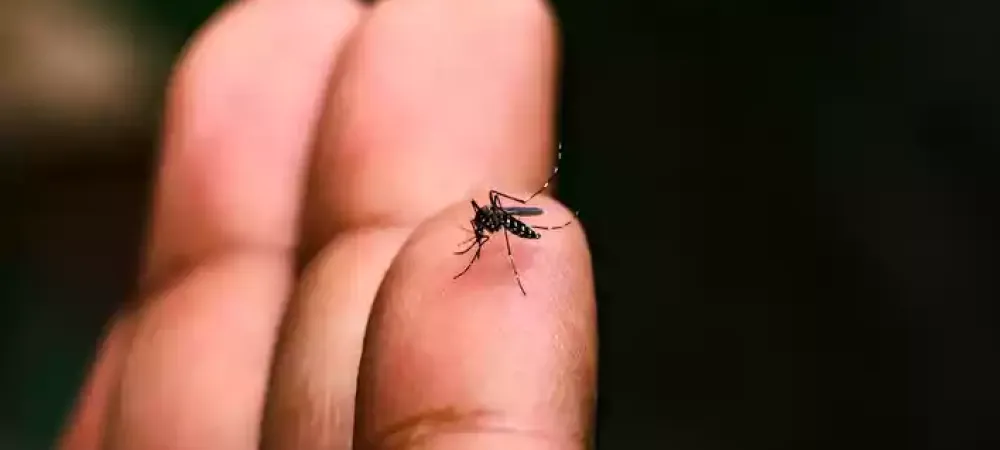Understanding the Life Cycle of Mosquitoes

To effectively control and manage mosquito populations, it's crucial to understand their life cycle. In this blog, we'll delve into the fascinating world of mosquitoes, exploring each stage of their life cycle and offering insights on how homeowners can combat these buzzing nuisances.
The Four Stages of Mosquito Life Cycle
Mosquitoes go through four distinct stages in their development, each with unique characteristics and requirements. Let's explore the four stages of the mosquito life cycle in detail.
1. Egg Stage
Mosquitoes begin their lifecycle as eggs. Female mosquitoes lay their eggs in stagnant water, such as ponds, birdbaths, flowerpots, or even small puddles. The eggs are laid in clusters called rafts, which float on the water's surface. Depending on environmental conditions like temperature and humidity, mosquito eggs can hatch within 24 to 48 hours.
2. Larva Stage
Once the eggs hatch, they enter the larval stage. Mosquito larvae, often referred to as "wigglers," are aquatic and feed on microorganisms and organic matter in the water. They have distinct features like a segmented body, a head with mouth brushes for feeding, and a siphon for breathing air at the water's surface. Larvae go through several molts as they grow, shedding their exoskeleton to accommodate their increasing size.
3. Pupa Stage
After the larval stage, mosquitoes enter the pupal stage. Pupae, also known as "tumblers," are non-feeding and undergo dramatic transformations. They have a comma-shaped body and respiratory trumpets for breathing air. During this stage, the mosquito's body develops and prepares for adulthood. Pupae typically spend 1 to 4 days in the water before emerging as adults.
4. Adult Stage
Once the transformation is complete, adult mosquitoes emerge from the pupal stage. Male mosquitoes typically emerge first and wait for females to emerge. Female mosquitoes require a blood meal for egg production, while males primarily feed on plant nectar and juices. Mosquitoes are most active during dawn and dusk, seeking out hosts for blood meals. After mating, females lay their eggs in water, completing the lifecycle.
How To Disrupt The Mosquito Life Cycle
Disrupting the mosquito life cycle involves targeting each stage of its development to prevent it from reaching adulthood and reproducing. Here are some effective strategies to disrupt the mosquito life cycle:
Use Larvicides
Apply larvicides to standing water sources that cannot be eliminated, such as ponds, ornamental pools, and rain barrels. Larvicides are chemicals that target mosquito larvae, preventing them from maturing into adults. Follow the manufacturer's instructions and safety guidelines when using larvicides to ensure effective and safe application.
Employ Biological Control Methods
Introduce biological control agents like Bacillus thuringiensis israelensis (Bti), a naturally occurring bacterium that targets mosquito larvae specifically. Bti products are safe for humans, pets, and non-target wildlife. Bti is most commonly found in the form of mosquito dunks.
You can also encourage natural predators of mosquitoes, such as dragonflies, bats, and certain bird species, by creating habitats that support their presence in your yard.
Professional Mosquito Control
If you are looking to completely disrupt the breeding cycle and get rid of all mosquitoes in your yard, it might be time to call Wolfpack Pest Control. With recurring treatments, our experienced mosquito exterminators are guaranteed to keep your yard mosquito-free this summer. Contact us to learn more!
